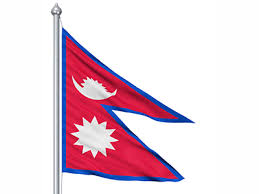KATHMANDU – Nepal’s Maoist Prime Minister Prachanda sent one of his trusted lieutenants from the insurgency period as a special envoy to China. He seeks to clear confusion over the future of agreements signed by his predecessor. In a balancing act, officials said Prachanda would send another deputy, Bimelandra Nidhi, a member of the Madhesi minority community, as an emissary to India this week to give reassurances that closer ties with Beijing would not come at the cost of New Delhi.
Krishna Bahadur Mahara is a deputy premier in charge of finance and a China expert. He will carry a message from Prachanda that Nepal is keen to develop cordial relations with China despite recent political changes.
Prachanda, 61, who led a decade-long insurgency that ended a feudal monarchy, replaced communist K.P. Oli this month. There was uncertainty about the status of deals made by former Prime Minister Oli during a visit to Beijing in March, including allowing Nepal to use Chinese railways, roads and ports to trade with third countries.
Those deals signaled a shift by the landlocked Himalayan nation. It was a move away from Nepal’s traditional reliance on overland trade with India, which grew increasingly frustrated with Oli’s rule.
“There is no doubt that the new government will continue all positive agreements signed by the previous government,” deputy premier Mahara affirmed.
Prachanda is the eighth prime minister of Nepal in the span of 8 years. Such instability has also raised doubts over a planned visit by Xi Jinping in October, which would be the first by a Chinese president in two decades. Mahara said he was carrying an invitation from President Bidhya Devi Bhandari to the Chinese leader to come as planned
Nepal’s relations with India have remained frosty since it adopted its first republican constitution in September 2015, triggering deadly protests by minority Madhesis in the south and leading to a border blockade the caused acute fuel shortages.
Officials said Nidhi would extend an invitation to President Pranab Mukherjee of India to visit Nepal before Xi is due to come.
Prime Minister Narendra Modi visited twice in 2014, but the ‘relationship’ went sour after September 2015, with most Nepali’s suspecting Modi’s tacit support to the Madhesi protests.
No Indian president has come to Nepal since 1997. “Prachanda wants to balance ties with neighbours at the same time show to India that Nepal has not slipped out of its hands,”said Guna Raj Luitel, editor of the Nagarik daily.


